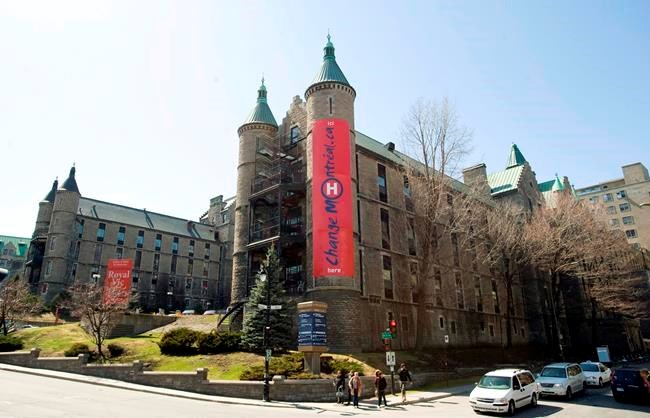MONTREAL — McGill University and a group of Indigenous elders have reached a deal to search for the possibility of unmarked graves at the former site of a Montreal hospital, following a court ruling described as precedent setting.Â
The Mohawk Mothers allege there are bodies of Indigenous patients buried on and around the old grounds of the Royal Victoria Hospital, which McGill is renovating to expand its campus.Â
"I'm glad that everybody agreed with that, and we all want this to happen and we're going toward justice," Kahentinetha, one of the Mohawk Mothers, said in an interview. "We always said we're here for the children and we want justice for all the children."
The Mothers say they have uncovered evidence of graves following interviews with survivors of mind-control experiments that took place in the 1950s and 1960s at a psychiatric institute affiliated with the hospital. Canada and the United States allegedly funded abusive psychological experiments on vulnerable patients with the MK-ULTRA program, which included experimental drugs, rounds of electroshocks and sleep deprivation.
The group filed a civil suit in March 2022, and last October it obtained an injunction ordering a pause on excavation work on the university-expansion project with a judge ruling the renovations would cause irreparable harm. After several mediation sessions, the Mothers and McGill reached a deal on April 6.
On Thursday the Quebec Superior Court gave legal status to the agreement that would allow three archeologists — and one junior archeologist appointed by the elders — to study the site and identify the proper techniques to look for unmarked graves. The panel will determine which search methods could be used, such as ground-penetrating radar and the use of dogs.
Preparatory work began this week with a site visit by archeologists. The agreement stipulates that if no graves are immediately found then excavation work can begin on a rolling basis and in a sensitive manner in case there is an unexpected discovery.
The merits of the case brought by the mothers will be argued at a later date. But in the interim, it's hoped that the court injunction and agreement will serve as a precedent.
Philippe Blouin, an anthropologist and interpreter who assisted the Mothers in court, said the agreement could be used to explore for graves on sites where Indigenous children were sent to — other than residential schools — such as sanatoriums or reformatories.
"Why this is important now is because it's precedent setting .... It directly sets a precedent for a way to proceed when there's allegations of them (graves)," Blouin said.
In a statement, McGill welcomed the agreement, which will allow the university and the provincial body that supports public infrastructure projects — Société québécoise des infrastructures — to transform the site into a new research and teaching hub.
"This agreement provides for an unprecedented collaboration between the Kanien’keha:ka Kahnistensera (Mohawk Mothers), the SQI, and McGill, which will shed light on allegations of the possible presence of unmarked graves on portions of the former Royal Victoria Hospital site," the university said in a statement.
As part of the deal, cultural monitors will also be on site to witness the excavation work and conduct ceremonies as needed. Â
This report by The Canadian Press was first published April 21, 2023.
Sidhartha Banerjee, The Canadian Press




